- Author Jason Gerald [email protected].
- Public 2024-01-19 22:11.
- Last modified 2025-06-01 06:05.
Violence can take many forms. Unfortunately, sometimes the manifestations are very subtle and difficult to identify. Have you experienced violence or received serious threats in the past? If so, it is natural that you are afraid that similar events will happen to you again. Don't worry, there are several things you can do to avoid violence: avoid people who are potentially violent, recognize the symptoms, and know when to ask for help. If you need help, make sure you also know the parties who can help you, and know what kind of help they can provide.
Step
Part 1 of 3: Identifying Potentially Violent Persons
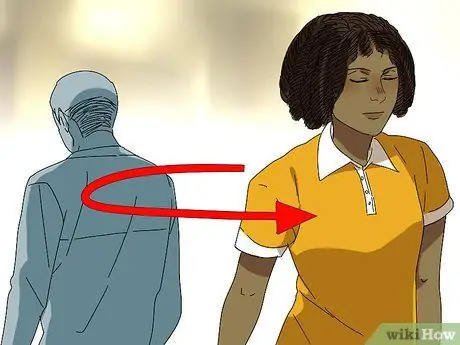
Step 1. Be aware of all the people who have hurt you in the past
Be careful, they've done it before and have the potential to do it again one day. For this reason, try your best to avoid interacting with these people.
- If the situation makes it impossible to avoid them, at least don't spend time alone with them. Ask a friend or relative to accompany you whenever you need to see them.
- Stay away from people who have threatened to hurt you. Threats of violence are very likely to be transformed into actual acts of violence. Therefore, the wisest step is to avoid people who have threatened you.
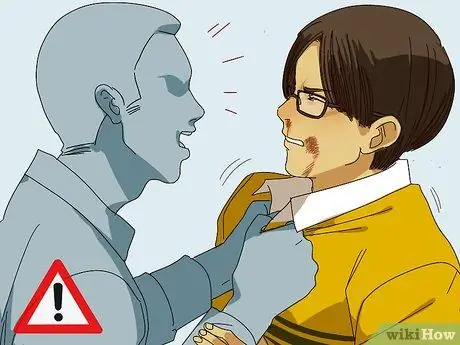
Step 2. Watch out for abusive and uncontrollable behavior
People who often behave violently are more likely to commit violence. Around these kinds of people, you often feel the need to act very carefully so as not to upset them. Try to avoid people who often express their anger excessively, such as by:
- throwing things
- break things
- hitting walls or kicking furniture
- pulling your hand tightly or physically restraining you in some other way
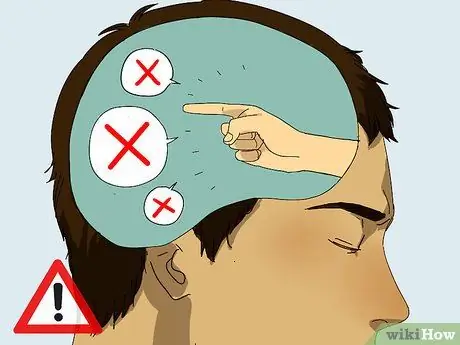
Step 3. Watch out for possessive or jealous behavior
People who always want to control things have a higher potential for violence. Beware if your partner often feels jealous for no reason or always wants to know every detail of your activities. A person who is unable to control his possessiveness and jealousy is at high risk of violence against his partner! Some examples of possessive and easily jealous behavior are:
- constantly checking your news or whereabouts
- over-interrogating if you come late
- calling you a "liar"
- telling you to behave or dress the way he wants
- force you to make a commitment ASAP
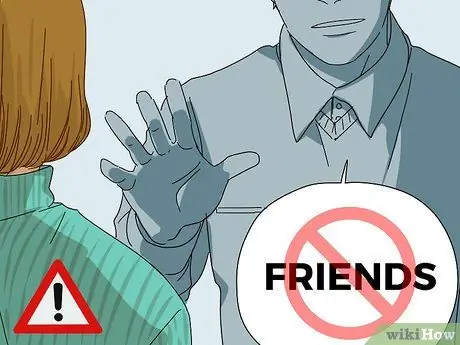
Step 4. Realize if the person is trying to isolate you from your surroundings
Perpetrators of violence often control their victims by isolating them from the world around them. This isolation attempt is often carried out in a subtle way, such as when he asks you not to spend too much time with certain people. Sooner or later, the request will turn into a “ban” from seeing some people, even if they are your close friends or relatives.
Abusers will usually accuse your friends or relatives of being “troublemakers” or “intercessors,” and should be avoided. If you are in a heterosexual relationship with a potentially violent man, there will be times when he will call you a “slut” when you spend time with your male friends. As if that wasn't scary enough, he may also accuse you of being a “lesbian” if you spend too much time with your girl friends
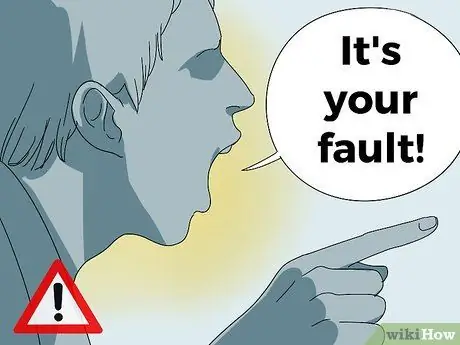
Step 5. Observe how the person justifies his or her behavior
Perpetrators of violence tend to find excuses to justify their behavior, including blaming others or even the victim. Observe what the person says after doing or saying something that hurt you.
- Does the person often blame you or others for their behavior? If so, get away from it as soon as possible. In the future, you will most likely still be positioned as the reason behind his irresponsible behavior.
- Some perpetrators of violence often call their victims "too sensitive". If someone often makes you feel bad, embarrassed, or low self-esteem and then ignores your feelings, they are most likely being emotionally abusive towards you.
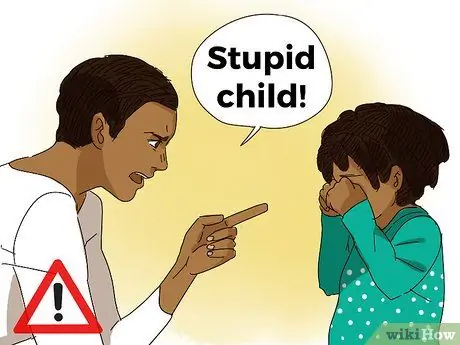
Step 6. Observe how he treats animals and children
People who have the potential to commit violence are often cruel and lack empathy for animals and children. Be aware, the way he treats animals and children is a reflection of the way he treats you in the future. Observe his behavior carefully.
For example, has the person ever kicked his dog when he was frustrated? Or had he ever said inappropriate things to a child because he was in a bad mood? Such behavior indicates the potential for violence in the person

Step 7. Observe the person's sexual behavior
Some people often commit acts of violence while having sex. For example, he may try to control or hit you, or keep doing something even if you don't like it. Watch out for such odd behaviors.
Don't live with someone whose sexual tendencies make you uncomfortable
Part 2 of 3: Identifying Violence

Step 1. Watch for signs of physical abuse
Signs of physical abuse are varied and sometimes subtle. You may experience physical violence if:
- have unexplained cuts, bruises, or scratches
- have scars in the form of palm prints or prints of other objects, such as belts
- wearing inappropriate clothes to cover wounds on the body, such as a jacket when it is very hot
- feeling scared or alert all the time
- jerks when touched
- often neglecting school or work responsibilities due to bodily injuries
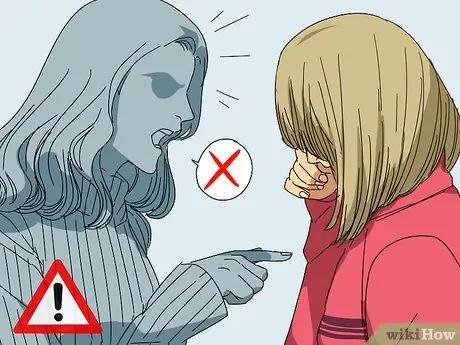
Step 2. Watch for signs of emotional abuse
Signs of emotional abuse vary widely; but most importantly, learn to observe how other people treat you. You may experience emotional abuse if:
- often feel anxious or afraid to make mistakes for fear of disappointing someone
- often feel the need to isolate yourself because there are people who make you feel worthless
- often exhibit extreme behavior, such as being very demanding or very passive
- not close to one or both parents (for children)
- feel the need to act more mature or more childish than the appropriate age, such as parenting a sibling or thumb sucking (for children)
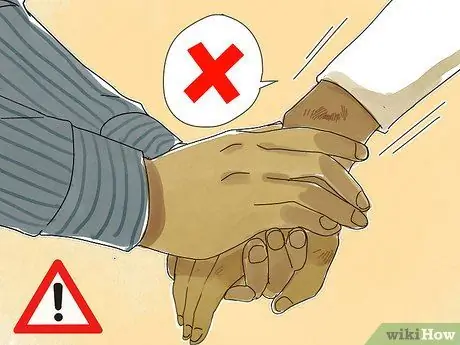
Step 3. Watch for signs of sexual assault
Sexual violence also has unique signs that distinguish it from other types of violence. Ironically, sexual violence is the most common among children. You may experience sexual assault if:
- have been asked and/or forced to do sexual activity that you do not want to do
- avoiding certain people because they are bothered by the way they treat you
- difficulty sitting or walking
- have knowledge about sexuality that is not yet available
- don't want to change clothes in front of other people
- have a sexually transmitted disease (STD) or become pregnant at a very young age
- planning to run away from home
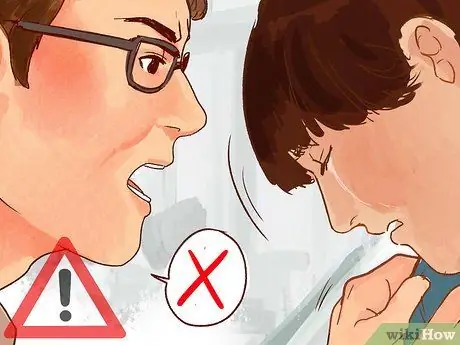
Step 4. Determine if your romantic relationship is violent
Realizing violence in relationships is not as easy as turning the palm of the hand. Although difficult, there are some common symptoms that indicate that your relationship is colored by violence, namely:
- You feel you have to always follow the words of your partner
- You must always report everything to your partner
- You can't get away from your partner
- You always worry about making your partner jealous or angry
- You often receive annoying (or threatening) calls from your partner
Part 3 of 3: Seeking Help to End the Chain of Violence
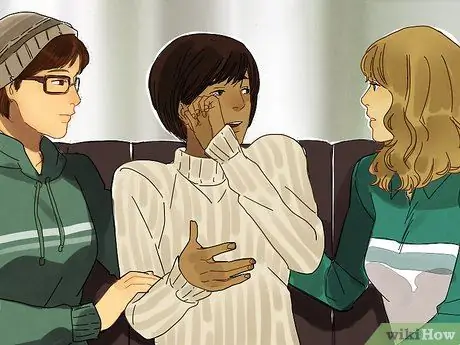
Step 1. Get help
If you are in an abusive relationship, the first thing you need to do is seek help. Share your abuse with trusted people, such as a friend, teacher, or counselor. Give details of the situation and ask for their help to get you out of the situation.
- If you decide to talk to a teacher or counselor, they are obliged to submit your report to the appropriate authorities afterwards. Most likely, you will need to run away from home and seek temporary shelter. Remember, this all needs to be done to protect - not punish - yourself.
- If you suspect violence has occurred to another person, report your suspicions to the authorities anonymously.
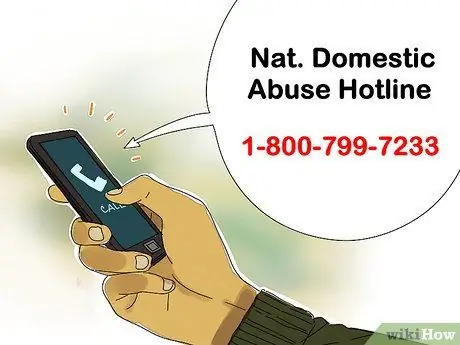
Step 2. Develop a plan to get away from the abuser
Surviving on the side of the abuser is an unwise decision; especially since similar (or even more severe) violence can happen to you at any time. If you live in the same house as the abuser, the best decision you can make is to run away from home.
- Discuss escape plans with a trusted friend or relative. If you're worried that the abuser will come after you, consider asking the authorities for help.
- From far in advance, determine and prepare the things you need to bring when you run away. Putting these items in a large bag or suitcase doesn't seem like a wise decision (your plan runs the risk of being smelled by the perpetrators). Therefore, it's a good idea to store these items in the same drawer or in the corner of the wardrobe.
- Contact the organizations listed in the “Additional Resources” section below (according to the type of violence you are experiencing), and ask for their help in developing the best escape plan.
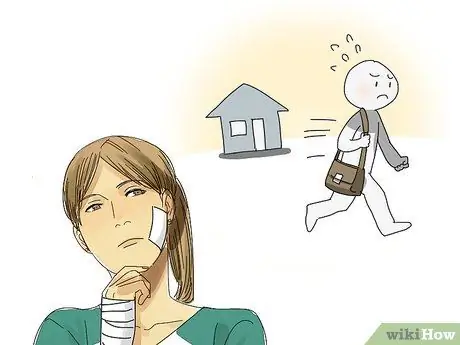
Step 3. Leave when the abuser is not home
Leaving the abuser behind is a very dangerous decision; so make sure you do it only when the perpetrator is not at home.
- For example, you could leave while the offender is working out at the gym or traveling with friends.
- If the situation doesn't allow you to do this, ask a friend or relative to help you escape.
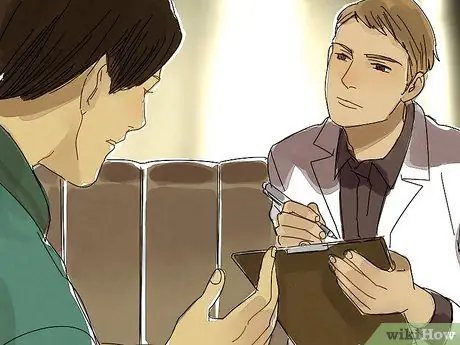
Step 4. Follow the therapy process
Recovering after experiencing violence is a long process and must be accompanied by a trusted mental health professional. Make sure you seek expert assistance during the recovery period.
Additional Resources
| Organization | Phone number |
|---|---|
| CONTRAST | (021) 2919097 |
| Indonesian Child Protection Commission | (021) 31901556 |
| National Commission for the Elderly | (021) 3914445 |
| Ministry of PP & PA | 082125771234 |






